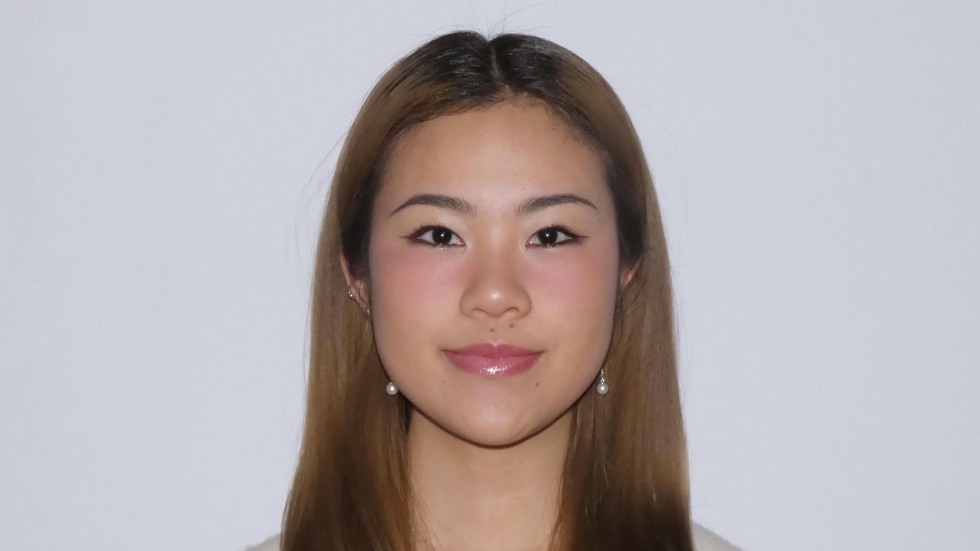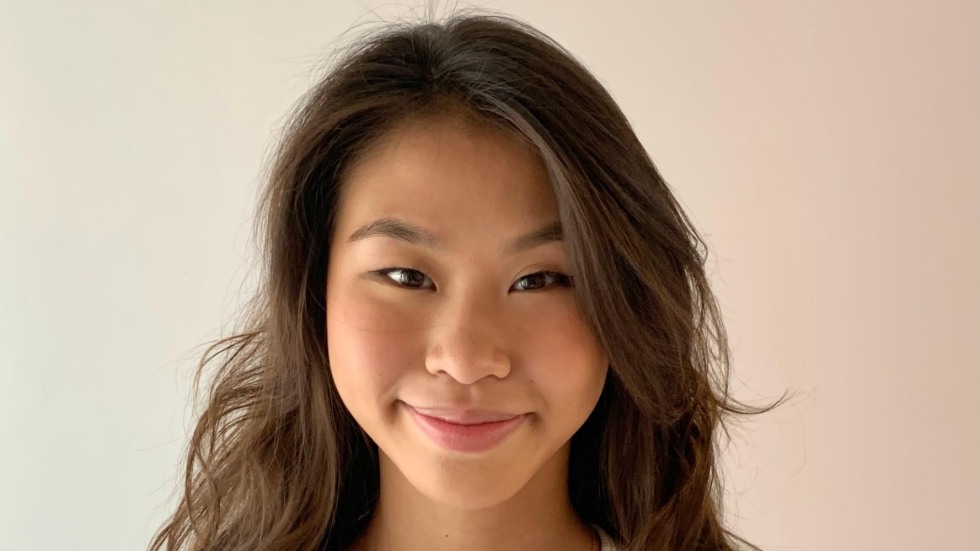The negative environmental impact of the fashion industry became clear to Chloe Sik and Kaila Sung, sophomores concentrating in International and Public Affairs (IAPA), when they took Professor Jeff Colgan's Politics of Climate Change course in the fall of 2022.
The final project they submitted for the class, a business plan for a sustainable fashion company, is now a semi-finalist for the prestigious Hult Prize, a competition that challenges young people to solve the world's most pressing problems through entrepreneurship. According to an email the pair received from the organization, out of over 200,000 individuals participating this year, theirs was one of only 700 startups chosen to advance to the semi-final round.
"We picked the class because we were interested in climate change, and we had heard great things about Professor Colgan," said Sik. At the end of the semester, Colgan offered students a choice of writing a traditional term paper or creating a business plan for a climate-related firm or organization of their own choosing. "We wanted to combine what we learned in class about climate change with one of our interests, which happens to be fashion," said Sung. So the pair decided to create a business plan for an environmentally sustainable fashion company for their final assignment.
"We ended up putting quite a lot of time and thought into it, and we got good feedback from our TA, Lee-Or Ankori-Karlinsky, and Professor Colgan," said Sik. "Combining fashion and sustainability had its challenges but was very fun to do together because we could explore our interests," said Sung, "It didn't really feel like work."
Because of the positive feedback they received in class, Sik and Sung pursued the startup idea further and, after joining an entrepreneurship club at Brown, decided to submit their proposal to the Hult Prize competition.
Fast fashion: Cheap but costly
According to the Geneva Environmental Network, fashion production makes up 10% of humanity's carbon emissions. Sik and Sung pointed out that so-called "fast fashion," trendy, cheaply constructed, low-priced clothing that moves quickly from design to retail, is a massive driver of emissions and waste.
While fast fashion may be cheap for the consumer, the pair pointed out that it has many hidden costs to humanity. "The greenhouse emissions number alone is huge because they produce so much clothing jumping from trend to trend," said Sik. Sung added, "Clothing trends threaten our environment because it permits companies to profit off of mass production that will eventually go to waste. Some of it ends up in landfills before it even reaches consumers because the trend has already passed."
The idea
To counter the harmful effects of fast fashion, the pair proposed an entirely different model: timeless fashions produced sustainably and made to last.
"We named the company 'In Attire We Trust,' which has a double meaning," said Sung, "one stems from the motto on U.S. currency, 'In God We Trust,' which suggests the U.S.'s economic and political fortunes are tied to its spiritual fate. We wanted to create a twist on that idea to suggest the country's fortunes today are tied to its efforts to create sustainable practices." She added, "We also want people to be able to dress in clothes that they trust are ethically and sustainably created or, in other words, 'In Attire We Trust.'"
The model
To create genuinely sustainable clothing, the duo realized they had to do more than create long-lasting clothing. They needed to embrace a fully vertically integrated business model. "We wanted to ensure every step in the process would be sustainable," said Sik. The business model they created allows them to control every step in the process, from sustainably sourcing materials, to creating timeless designs, to ensuring ethical labor practices, to the final stage of marketing and selling their merchandise to the public.
They want to give young women an alternative to fast fashion and plan to use the power of social media influencers to market their products. "We want to connect with people our age using the platforms that young people use," said Sik. "I feel like people underestimate how strong the influence of social media is, but because we are in the same age range as our target demographic, we understand it," she added.
Sung said distribution and shipping pose incredibly challenging problems when working to create an environmentally sustainable business plan. "We're thinking about that a lot," she said, "shipping is tough because no matter what route you take, you're creating greenhouse emissions." "So our plan — initially at least — is to start locally and do pop-up shops in areas that are popular with people our age," she said.
Both Sik and Sung expressed gratitude to Colgan for his support and inspiration. "This class completely transformed my experience at Brown," said Sik, "it is crazy to me the progress made and achievements gained from taking one class at Brown." Sung said the experience, "really motivated us to start the company." "And it's given us a lot of confidence that we're onto something great," Sik added.

